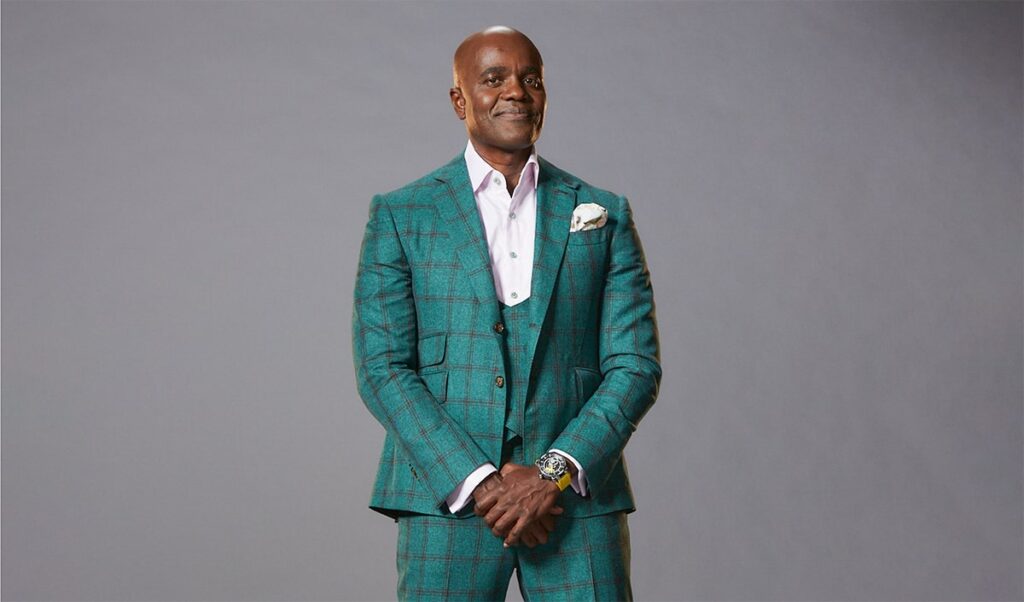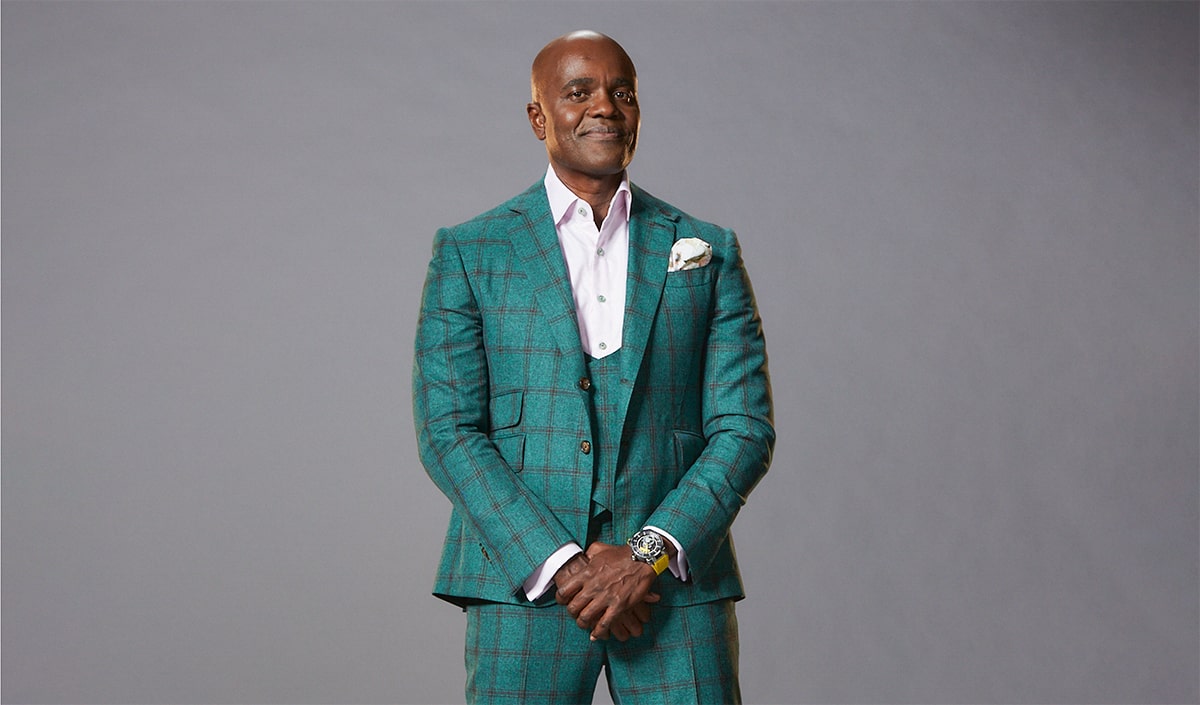Wes Hall: Strength Of Resolve

Dragons’ Den star Wes Hall’s new memoir is an emotional and captivating look at a fascinating journey — so far.
We all have our life stories to tell, but few are as inspiring, compelling and captivating as the life story of Wes Hall, who has returned for his second season as an investor on CBC’s Dragons’ Den as one of North America’s most influential power brokers and has just released his new memoir, No Bootstraps When You’re Barefoot.
His current success is a far cry from his humble beginnings, born into abject poverty in Saint Thomas, Jamaica, in a home with a verbally abusive and violent mother who kicked him out of the house at age 13 with no means to support himself.
“I was always meant to be poor,” says Hall, in a recent interview with Dolce. “And the reason I was always meant to be poor was, when you grow up in poverty, you’re not sitting there thinking, ‘One day I’ll be eating steak and living in this fancy house in Toronto in the financial capital of the country and have the respect of all these CEOs.’ Think about the audacity of that thinking when you’re walking barefoot with no shoes. So, I didn’t have that ambition, because I had no basis for it. As a child, I just wanted to survive.”
Fortunately for young Wes Hall, he went to live with his beloved grandmother, Julia, who became his mentor, role model and shining sun at the centre of what could well have been a very dark and troubling pending universe. Even though she worked six days a week, Julia always made sure the children in her home had clean and ironed school uniforms and looked their best for the most important times.
“My grandmother believed I was not an average kid,” recalls Hall. “I don’t know why she thought that but she did, and she believed in me. I knew I had abilities, but I had no idea how far they could take me. But one thing is true — poverty has nothing to do with being loved.”
Writing his memoir was an emotional rollercoaster for Hall, having to relive and face once again the traumas of his youth, the feelings of losing his brother to murder or his sister to cancer. He had to relive the feeling of relief when he heard the shower and knew this meant his mother would be leaving the house, or the fear in his heart and stomach when he saw her on the hill above his house, knowing she was coming home.
“When You Come From Poverty, You Become A First Responder,” Says Hall. “and Your Job Is To Go Back Into Poverty And Pull As Many People Out Of It As Possible”
Hall immigrated to Canada in 1985 when he was 16. He stepped off the plane in Toronto and had to start reacquainting himself with his biological father, new stepmother and new siblings. He saw the success his father was having and immediately “saw the world I wanted to be in.” His fascination with his new world began with the tiniest of things. Arriving on a Friday, he was automatically registered to start school the following Monday, “instead of having to write an exam which is required for all schooling in Jamaica, where in Canada, schooling is a right,” observed Hall.
After high school, Hall found work in the mailroom of a major Bay Street law firm, where once again the influences of his grandmother continued to impact his life for the better. Instead of wearing jeans and a T-shirt like the rest of the mailroom staff, he remembered Julia’s advice to always look your best at the most important times. He bought a suit at Goodwill and wore that instead. He received some ribbing from the other guys in the mailroom but Hall had other plans.
There is an unspoken hierarchy in big-time law firms that the partners or associates don’t really mingle with the clerical staff, much less those who work in a mailroom. “I was wearing that suit with pride because of what it meant to dress up like that in that environment,” says Hall. “So, when I was walking down the hallway with my suit on without the mail cart, the associates would speak with me, and those conversations were extremely helpful to me — they were teaching me things.”
As his grandmother wisely suspected, not your average kid.
After being educated as a law clerk at George Brown College, Hall worked in the legal division of CanWest, founding Kingsdale Advisors in 2002, a shareholder services and business consultancy. In 2006, the firm became a major player in Canadian business when it managed Xstrata’s purchase and takeover of Falconbridge. He also later established QM Environmental, an environmental remediation firm.
In 2020, Hall launched the BlackNorth Initiative, a trail-blazing organization taking aim at ending systemic anti-black racism in business. It’s an example of his passion for people, his caring for community and his efforts to make society a better place.
Now the happily married father of five children, Hall’s success has allowed him to give back, focusing on health care and education. He donates to the University of the West Indies by holding an annual fundraiser in Toronto to create scholarships for kids across the Caribbean, and also works with the SickKids Caribbean Initiative, which brings doctors from the Caribbean to Canada to train in pediatric oncology so they can go back to their communities to help children dealing with cancer and to operate a telemedicine facility.
“When you come from poverty, you become a first responder,” says Hall. “And your job is to go back into poverty and pull as many people out of it as possible.”
From barefoot to the boardroom, Hall’s life story in his new memoir is one of strong resolve, passion, commitment and the unwavering determination to succeed, effect change and impact lives. Those are strong life lessons for us all.
Interview by Estelle Zentil



















































































